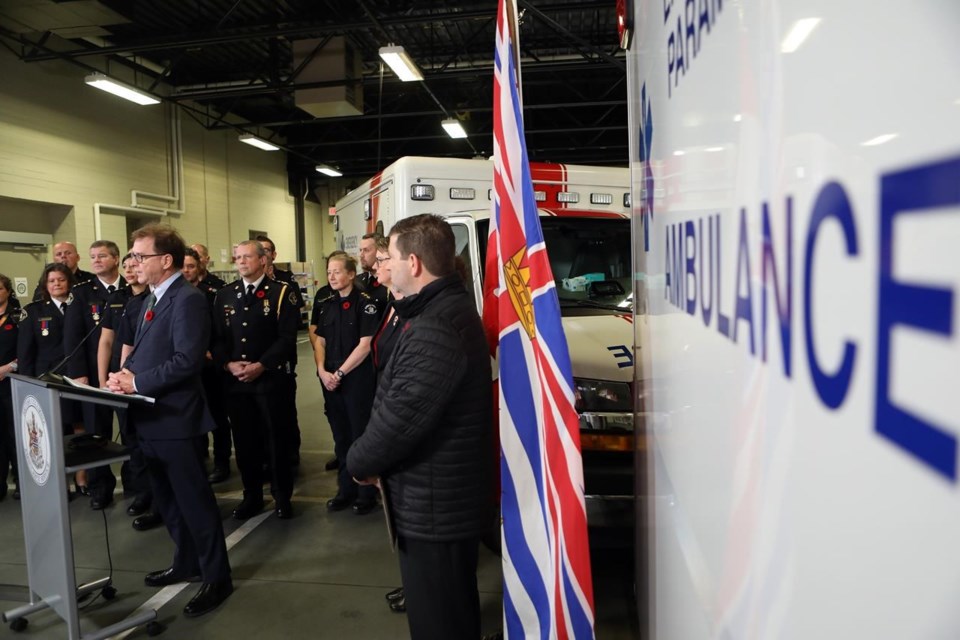VICTORIA — British Columbia is shifting its ambulance paramedics staffing model for 60 rural and remote communities in what Health Minister Adrian Dix says is an "unprecedented" investment in emergency health care.
Dix says three new staffing models for paramedics would increase the number of on-duty ambulance workers during nights and other off-peak times.
BC Emergency Health Services says in a statement the shift will add more than 271 new full-time paramedic positions for the three separate models that will give flexibility for ambulance needs in each community.Â
Dix says the changes come after consultations with the province's paramedics union, community leaders, First Nations and health-care professionals.Â
BC Emergency Health Services chief ambulance officer Leanne Heppell says the flexibility is needed because "one model just doesn't work that well across the province," given the differences in the communities' population, demographics and overall demand.
Dix says B.C. needs more community paramedics and ambulance workers, and he urged those interested in the work to reach out while the province hires staff to fill the demand.
"In short, this is a significant and transformational change in the ambulance service, and I think it's important to recognize the value of that change," Dix says.
"We've achieved this significant new investment by working together to ensure that people, when they call 911, get the ambulance they deserve."
The three new models of staffing include a 24-hour model, to be used in 21 communities, that will have on-duty paramedics at the stations three times more than with the existing model.
The communities receiving the so-called alpha-24/7 model include Bowen Island, Tumbler Ridge, Boston Bar, Bella Coola and Gold River.
Communities such as Alert Bay, Ucluelet, and Kaslo will instead change to a “mix shift” model that allows for flexibility for paramedics but also increases the level of on-duty staff, the government says.Â
The previous "scheduled on call" system of staffing will be phased out, and Heppell says it reflects the responses they received in consulting everyone involved in the delivery of - and demand for - ambulance services in rural and remote areas.
"What was deeply reinforced during this process is how unique some of our very remote communities are, and how one staffing model just doesn't work that well across the province," Heppell says. "These three improved staffing models provide the communities with schedules and resources that will do a better job of looking after the local needs."
BC Emergency Health Services provides ground and air ambulance services.Â
The province says it has increased the annual budget for BCEHS since 2017 from about $424 million to $766 million in fiscal year 2022-23.
The province says the added funding has enabled B.C. to staff 59 per cent of paramedics spots through regular, permanent positions, up from 39 per cent in 2017.
This report by The Canadian Press was first published Nov. 9, 2023.
The Canadian Press
Note to readers: This is a corrected story. A previous version said 261 full-time positions would be added.




